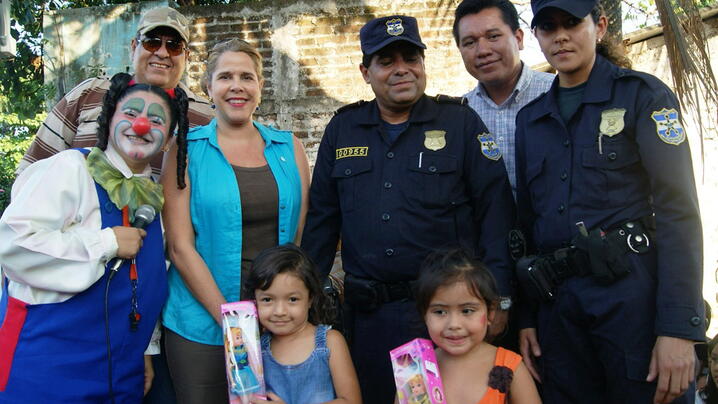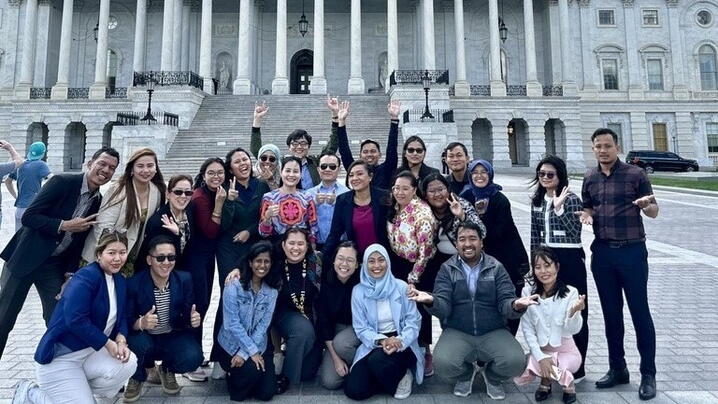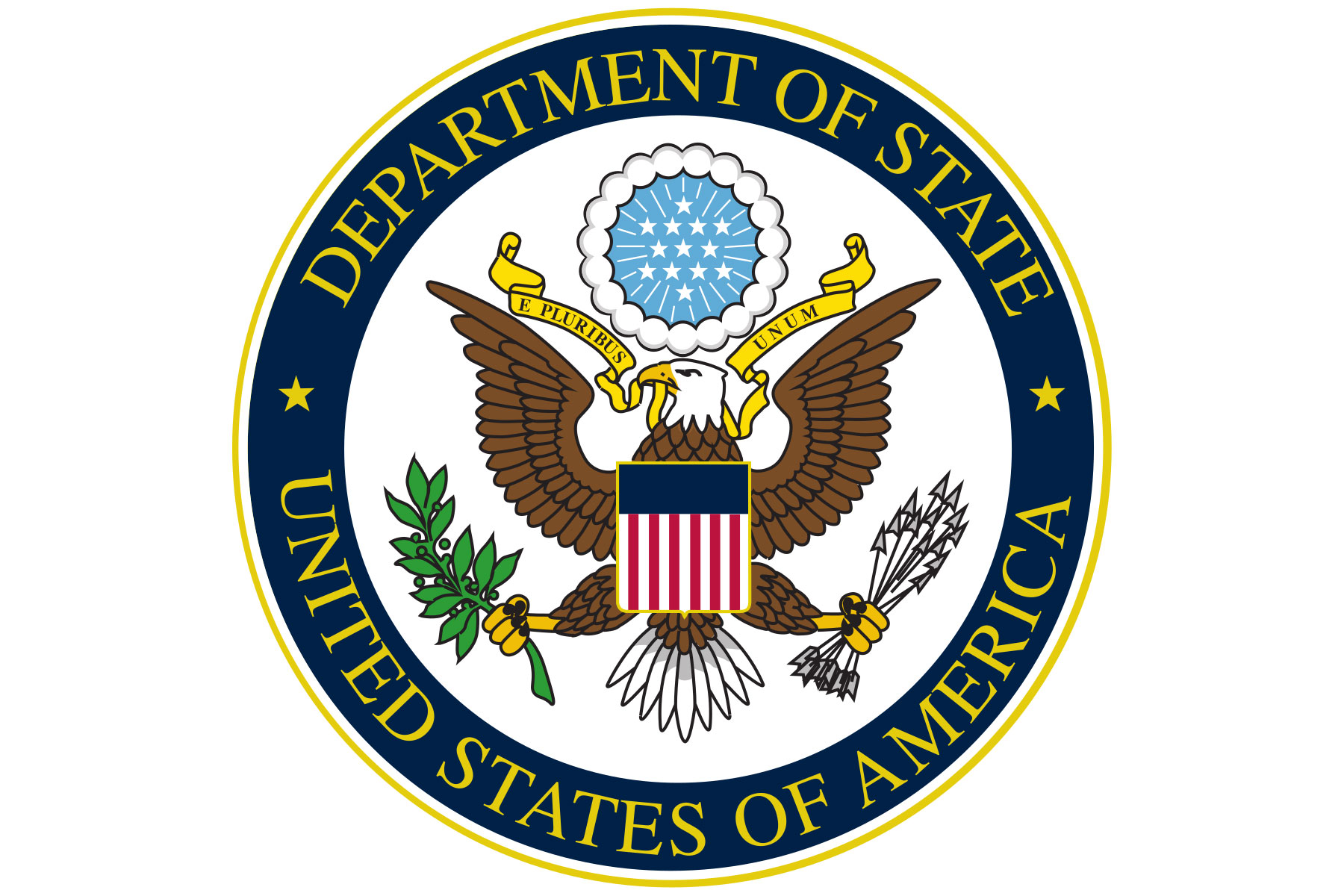Thirty professionals from Timor-Leste and Indonesia and ten from the United States participated in a Legislative Process and Governance Professional Fellows Program implemented by ICMA in 2013-2015. Fellows learned practical skills relating to the role and responsibility of of local governments in civic engagement, promoting transparency while also fostering interaction with leaders from federal, state, and local organizations.
The goal of the program, funded by the U.S. State Department, Bureau of Educational and Cultural Affairs, was to create a global network of emerging local government leaders to positively impact legislative processes and governance practices in their organizations and in their communities, by enriching their leadership skills and cultural understanding and by providing opportunities for knowledge exchange and ongoing collaboration.
The 30 Asian/Pacific Fellows, divided into two cohorts, spent four and a half weeks in the United States in May and October 2014. They came first to Washington, D.C., for an orientation, then traveled to host communities for three weeks, and then returned to Washington for a Professional Fellows Congress. U.S. Fellows, drawn from those who hosted the international participants, then traveled to their counterpart’s organization for two-week fellowships in August 2014 and February 2015.
ICMA partnered with Local Government Managers Australia (LGMA), and the Association of Indonesian Municipalities (APEKSI) to select the Asian/Pacific participants and identify host country communities. APEKSI and LGMA are ICMA International Affiliate organizations.
The exchange was a part of the Professional Fellows Program sponsored by the Office of Citizen Exchanges of the Department of State’s Bureau of Educational and Cultural Affairs. The Professional Fellows Program brings several hundred emerging leaders from around the world to the United States each year for intensive fellowships designed to broaden their professional expertise.

AMUPREV was launched in 2009 in response to demand from a group of Central American mayors for assistance in addressing crime and violence in their municipalities. At the time, the Merida Initiative had been underway for two years, initiated in 2007 to respond to rising drug trafficking and crime in Mexico and Central America. Funding heavily focused on law enforcement and deterrence but in time it became clear that the approach was not producing results and that greater emphasis was needed on “building strong and resilient communities” to address the root causes of violence and demand for drugs.
ICMA partnered with Institute for Local Development in Central America (IDELCA) to launch AMUPREV, a regional knowledge sharing platform and municipal strengthening project to build local government capacity to formulate and implement crime and violence prevention, with the following objectives:
- Support the development of regional peer knowledge networks to ensure that crime prevention activities become part of the municipal agenda.
- Support comprehensive municipal-based violence and crime prevention strategies and programs in select municipalities.
ICMA’s approach to AMUPREV was informed by its experience in the Latin American/Caribbean (LAC) region working with municipalities, municipal associations and regional organizations, and its unique and successful CityLinks™ program for peer-to-peer partnerships between US and host country cities.
AMUPREV worked simultaneously at the regional, national, and municipal levels. At the regional level, AMUPREV facilitated and supported a regional network of national municipal associations to exchange experience and knowledge on municipal crime and violence prevention. At the national level, AMUPREV worked with municipal associations to enhance their knowledge and communications about crime and violence prevention to support municipal leadership in crime and violence prevention. At the municipal level, AMUPREV supported the creation of municipal violence prevention committees/councils (MVPCs) that brought together community leaders, police, municipal staff, national government representatives, sectoral representatives and other stakeholders to plan, support and implement violence prevention initiatives in their communities. ICMA helped the MVPCs develop communications plans and campaigns; conduct diagnostics of the risk and protective factors in their municipalities; develop strategic and work plans to promote, coordinate and leverage initiatives in areas such as education, health, sports, the arts (music/dance/theater), crime prevention through environmental design, and many others supported and implemented by MVPC members. As part of the CityLinks™ Component, ICMA conducted a series of municipal partnerships with cities in the US to share the model of community-oriented policing and collaborative multi-stakeholder efforts to combat crime.
AMUPREV began implementation in 2009 in five municipalities in two countries (Panama and El Salvador. By the end of AMUPREV in 2019, the project scope encompassed five countries, 29 municipalities, and eight municipal associations, including the Dominican Republic, Belize and Puerto Rico . In addition to the activities above AMUPREV also documented and shared the experience in Brazil of the Unidades de Policía Pacificadora (UPPs) as a model for potential adaptation to and application in Central America. ICMA developed a Toolkit and Comprehensive Training Program on the UPP model and supported a series of exchanges with El Salvador to share lessons learned. AMUPREV also held a total of 6 Training of Trainers (TOT) workshops to implement an awareness-raising program in selected schools in the Dominican Republic to prevent victimization related to trafficking in persons.

Key Project Information
Funder
Period of Performance
Location
Brunei, Cambodia, Indonesia, Laos, Malaysia, Myanmar, Philippines, Singapore, Thailand, Timor-Leste, United States, VietnamICMA's Role
Project Details
Since 2012, ICMA has been implementing U.S. State Department Professional Fellowship Programs. Initially these exchanges focused on legislative and governance technical areas broadly. Since 2018, ICMA has implemented professional exchange programs to address specifically sustainable development and the environment through the Young Southeast Asian Leaders Institute (YSEALI) program, where many ICMA members host these young professionals across the U.S. The program is funded by the U.S. Department of State's Bureau of Educational and Cultural Affairs (ECA).
Themes for Leadership and Professional Development Opportunities
The Sustainable Development and the Environment theme provides the Young Southeast Asian Leaders Initiative (YSEALI) Professional Fellows with an opportunity to explore public and private sector approaches to environmental challenges. It also supports professionals involved in food and water security; public health; ecotourism; the innovative development and management of agricultural, energy, housing and/or transportation resources; natural disaster response; natural resource conservation and restoration; and waste management, with an emphasis on grassroots activism; government policy and regulation; and market-oriented initiatives.
How Does It Work?
Selected participants will travel to the US for six weeks during their fellowship period. Selected Fellows will be hosted by an organization for four weeks. ICMA will match selected Fellows with a host organization based on their professional background, technical expertise and community challenge.
Fellows will identify a community challenge and find a way to address it after the program. Fellows will work with their American host during the program to find innovative ways to solve that challenge.
Host a Fellow
ICMA matches Fellows with U.S. host communities that provide educational and cultural experiences for the Fellows during a four-week period. In return, hosts may apply for reciprocal visits in the Fellow's country. Past hosts have found the experience highly rewarding.
“The opportunity to work with the nation of Indonesia has been a chance for my organization to broaden their perspectives of municipal government responsibilities and focused it on our best practices. As City Manager, I personally have seen a new appreciation by my staff for the challenges of municipal government beyond our borders. I believe the continued opportunity to work with Indonesian counterparts allows me to grow professionally and obtain new ideas for use in my American city.” – Mark Watson, City Manager, Oak Ridge, Tennessee.
“My six-week stay in the US was the most memorable experience of my life. I had the opportunity to visit various farms and engage in insightful knowledge-sharing experiences with amazing farmers I met along the way. Witnessing how farmers actively contribute to their communities and society left the greatest impression on me. It was inspiring to see that farming extended beyond their own lands to schools, where they engaged children in farming lessons and activities, fostering a deeper connection between agriculture and education. Additionally, experiencing small-town living in Frankfort reshaped my preconceptions about community and hospitality. The warmth and kindness of the people left an indelible mark on me, and I find myself yearning to return to that place time and time again.” – Nasuha, 2023 Sustainability Fellow, Thailand.
"Before my fellowship journey, I was indecisive, lacked confidence, and lacked knowledge. The YSEALI program gave me opportunities to shape myself both personally and professionally. I became better at decision-making, my self-confidence improved, and I also gained more knowledge, connections, and ideas. After I got back, I implemented my follow-on project, where I tried to set up a waste management system for communities that I work for by encouraging people to separate their waste and reduce generating waste if possible. Now, I have a one-year-old model compost bin for food waste as well as a Facebook group called ‘You first’, a community for people who are interested in waste sorting and sustainability development in a practical way." – Tarnya, 2022 Sustainability Fellow, Thailand.
Media
Videos
Solar Energy Expedition with Exchange Fellow from U.S Professional Fellowship Program
Past program participant Noor Shahiwan Bin Ismail put his experience from the YSEALI Professional Fellows Program to work in an aboriginal village in Malaysia with Mark Bortman, an outbound U.S. Fellow. Together, they visited houses to examine solar energy systems and to complete some maintenance and installations.
Funded by

